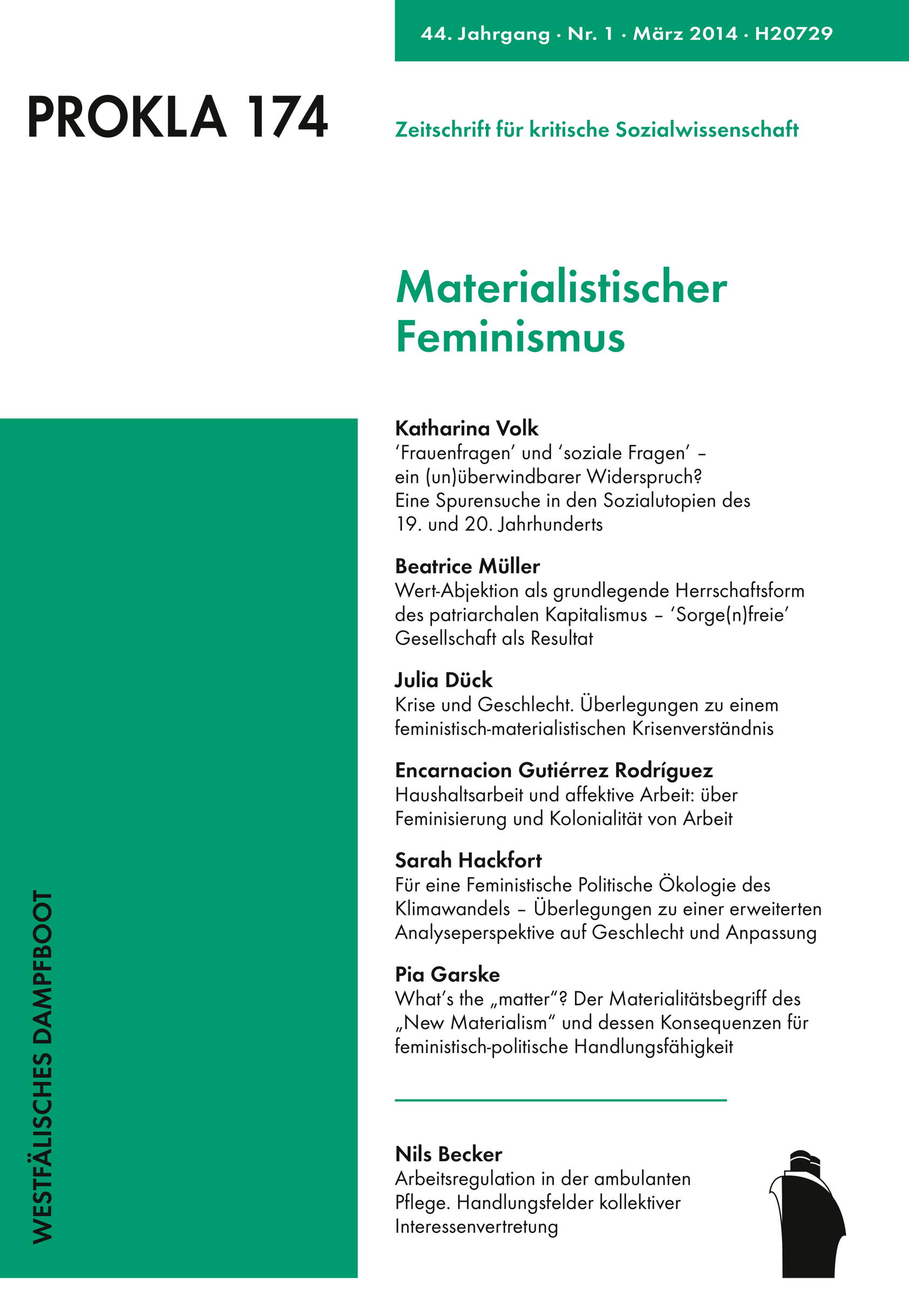'Women's questions' and 'social questions' - an insurmountable contradiction?
A Search for Traces in the Social Utopias of the 19th and 20th Centuries
DOI:
https://doi.org/10.32387/prokla.v44i174.189Keywords:
Social Question, Woman movement, FeminismAbstract
‘Women’s question’ and ‘social question’ are subject to the social critical theories of emancipation of the 19th and 20th Century. They were not just considered as antagonistic confronting issues, but as to be negotiated together. Starting from the criticism of the unfulfilled promises of the French Revolution, the ‘right to work’ and the emancipation of women was regarded as only together releasable social issues. In this article I am referring to the French early socialist Charles Fourier and the Russian revolutionary Alexandra Kollontai, who considered women´s question and social question as connected in their social theory and utopian ideas. Focusing on this, they developed utopian ideas for socialization of production and reproduction, in which the reproduction is considered to be a common task. In addition, Kollontai and Fourier stood for a new idea of love, which is also aimed at the separation of private and public, as their ideas for the socialization of reproductive and productive activities.






